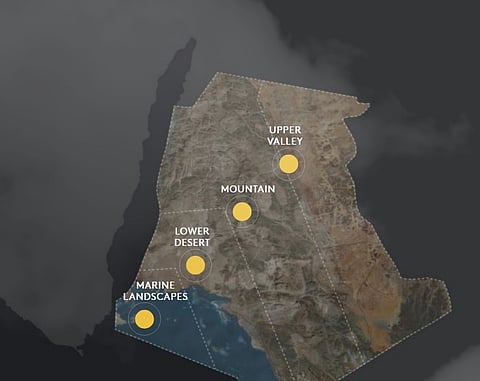NEOM: A Transformational Vision for the Future
NEOM is more than just a construction project—it's a radical attempt to redefine how humanity lives, works, and coexists with nature. Conceived as a centerpiece of Saudi Arabia’s Vision 2030, NEOM represents one of the most ambitious and futuristic urban development initiatives in history.
Vision & Scale
NEOM was launched in 2017 as a bold step toward Saudi Arabia's post-oil economy. Spanning 26,500 square kilometers in the northwest Tabuk province, NEOM consists of multiple interlinked zones:
The Line: A linear smart city
Oxagon: A floating industrial hub
Trojena: A mountain-based ski and wellness destination
Sindalah: A luxury tourism island
Magna: A Red Sea coastal region focused on nature and leisure
With investments ranging from $500 billion to over $1 trillion, NEOM aims to generate over 460,000 jobs and contribute billions to Saudi Arabia’s GDP. It is a cornerstone of economic diversification.
The Line: Reimagining Cities
The Line is NEOM’s most talked-about innovation—a 170 km long, 200 m wide, and 500 m high linear city for nine million residents. It’s built on futuristic urban principles:
No cars or roads
Zero carbon emissions
Daily amenities within a five-minute walk
End-to-end high-speed transport in 20 minutes
Powered by renewable energy and governed by AI, The Line aspires to be the world’s first truly smart and sustainable city.
Oxagon: Revolutionizing Industry
Oxagon is NEOM’s industrial engine—a partially floating, AI-integrated logistics and manufacturing hub. Designed to support advanced manufacturing, clean energy, robotics, and smart port systems, Oxagon symbolizes Saudi Arabia’s move toward high-tech and circular economies.
Trojena and Sindalah: Tourism Reinvented
Trojena offers a high-altitude year-round resort with skiing, hiking, and wellness facilities. It’s set to host the 2029 Asian Winter Games, becoming a new model for mountain tourism.
Sindalah, launched in 2024, is envisioned as a luxury island hub for yachting, golf, and elite travel, aimed at high-spending international tourists.
These zones diversify Saudi Arabia’s image beyond desert oilfields, opening new avenues for global tourism.
Sustainability at the Core
NEOM promises to be a carbon-neutral zone powered entirely by solar, wind, and green hydrogen. Initiatives include:
The world’s largest green hydrogen plant
Solar-powered desalination and circular water systems
Wildlife rewilding and coral reef restoration
95 percent land preservation for nature
These efforts position NEOM as a global sustainability testbed.
Challenges and Criticism
Despite its promise, NEOM faces major hurdles:
Scale-back concerns: Only 2.5 km of The Line has been built so far, and population goals for 2030 have been significantly revised downward.
Human rights issues: Indigenous displacement, surveillance, and labor exploitation allegations have drawn global criticism.
Feasibility doubts: Massive costs, shifting timelines, and technology readiness remain points of debate among experts.
Saudi leadership insists that the vision is intact and investor confidence remains strong.
A Bold Global Experiment
NEOM is an audacious attempt to transform urban civilization. If successful, it could inspire new cities around the world—eco-friendly, tech-driven, and people-first. But its outcome will depend not just on money and ambition, but also on ethical governance, technological execution, and global collaboration.
NEOM isn’t just a city. It’s a vision of the future—under construction.


